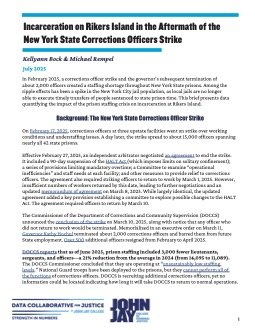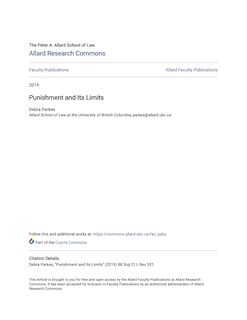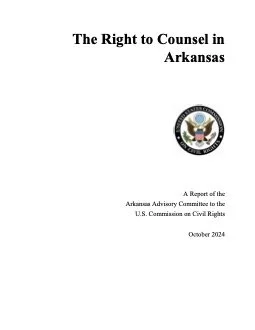By Leigh Courtney, Barbara Pierce, Ashlin Oglesby-Neal , Susan Nembhard
Many states have enacted comprehensive justice system reforms to reduce incarceration and community supervision in order to focus funding more on people at higher risk of reoffending and invest in strategies to achieve better outcomes for people and communities. Many policy reforms have been spurred by significant growth in the number of people on community supervision. According to a 2018 Pew Charitable Trusts chartbook, probation and parole populations nationwide grew 239 percent from 1980 to 2016 (Horowitz, Utada, and Fuhrmann 2018). Notably, community supervision populations peaked in 2007 and then fell 11 percent between 2007 and 2016. 1 To date, research on the impact of states’ community supervision policy changes has not kept pace with the rate at which they have been enacted, leaving policymakers and practitioners with a knowledge gap on which reforms have made a difference and why. The Urban Institute and the Crime and Justice Institute (CJI) assessed policies reforming probation sentencing in two states, Louisiana and Georgia, to understand their impact on people who are supervised and on outcomes including revocation and successful completion. Reforming probation sentencing is one way to ensure scarce resources are prioritized for supporting and monitoring people when their risk of failing supervision is highest, not for long periods after this risk has declined. Research has shown that supervision is most effective when it focuses on people who are at higher risk of reoffending and that recidivism rates drop precipitously after the first year of supervision (Alper, Durose, and Markman 2018; Andrews and Bonta 2010). A statutory reduction of the length of probation supervision terms can be a direct way to reduce the number of people under community supervision. When implemented consistently, probation sentencing reform may yield more reliable reductions of the supervised population than reforms that depend heavily on changing supervision practices. And by limiting how long supervision resources can be expended on people at low risk of failure, these reforms can yield significant gains in cost savings and community safety. In contrast to other community supervision reforms (such as earned discharge policies) that require people to incrementally earn time off potentially lengthy sentences at the back ends of their terms, probation sentencing reform establishes upper limits that apply uniformly to entire categories of people at the front ends of their terms. Despite these potential benefits, wholesale reductions of probation sentence lengths are uncommon. States’ strategies for reducing probation sentences have varied: some have shortened all probation sentences for certain offenses by reducing the maximum probation sentences allowed for those offenses, whereas others have simply granted judges the flexibility to impose shorter sentences than the maximums. Meanwhile, some states have used creative strategies to establish a presumption of shorter probation terms without changing sentencing requirements. These strategies blend front-end reductions of sentences with mechanisms similar to earned discharge policies that enable early release, but they also grant courts and supervising agencies discretion to extend those sentences at the back end because of noncompliance with supervision terms. For this reason, any assessment of the impact of probation sentencing reforms must consider the details of how they have been implemented and the extent to which discretion is allowed. Urban and CJI assessed implementation and analyzed outcomes of different approaches in Louisiana and Georgia. In 2017, Louisiana’s Senate Bill 139 eliminated the one-year minimum for all probation sentences and reduced the maximum sentence for felony probation from five to three years for a first, second, or third conviction for a nonviolent, non-capital felony. Approximately 89 percent of new probation starts in 2018–19 were for nonsex, nonviolent offenses. The policy allows judges to extend probation terms up to five years for people who do not comply with supervision conditions. The law affects everyone sentenced to probation as of November 2017. Also passed in 2017, Georgia’s Senate Bill 174 established two mechanisms for reducing probation sentence lengths. First, it requires that a probation sentence for any first-time felony conviction with a straight probation sentence (with no prison time) include a behavioral incentive date (BID) of three years or less, at which point the Georgia Department of Community Supervision (DCS) must file a petition to terminate probation if the person has not been arrested for anything other than a nonserious traffic offense during their probation term, has complied with the conditions of supervision, and has paid all restitution owed. About a third of the felony probation population from July 2017 to December 2020 was eligible for BIDs.2 Second, it makes early termination of probation available to anyone convicted of certain nonviolent felony offenses who has been sentenced to three years or more and who has not previously had their supervision revoked. The law requires DCS to file a petition for early termination for anyone who has completed three years of supervision and has not been arrested for anything other than a non-serious traffic offense, has complied with the conditions of supervision, and has paid all restitution. Courts may accept or reject BID petitions and early termination petitions at ends of their terms, probation sentencing reform establishes upper limits that apply uniformly to entire categories of people at the front ends of their terms. Despite these potential benefits, wholesale reductions of probation sentence lengths are uncommon. States’ strategies for reducing probation sentences have varied: some have shortened all probation sentences for certain offenses by reducing the maximum probation sentences allowed for those offenses, whereas others have simply granted judges the flexibility to impose shorter sentences than the maximums. Meanwhile, some states have used creative strategies to establish a presumption of shorter probation terms without changing sentencing requirements. These strategies blend frontend reductions of sentences with mechanisms similar to earned discharge policies that enable early release, but they also grant courts and supervising agencies discretion to extend those sentences at the back end because of noncompliance with supervision terms. For this reason, any assessment of the impact of probation sentencing reforms must consider the details of how they have been implemented and the extent to which discretion is allowed. Urban and CJI assessed implementation and analyzed outcomes of different approaches in Louisiana and Georgia. In 2017, Louisiana’s Senate Bill 139 eliminated the one-year minimum for all probation sentences and reduced the maximum sentence for felony probation from five to three years for a first, second, or third conviction for a nonviolent, non-capital felony. Approximately 89 percent of new probation starts in 2018–19 were for nonsex, nonviolent offenses. The policy allows judges to extend probation terms up to five years for people who do not comply with supervision conditions. The law affects everyone sentenced to probation as of November 2017. Also passed in 2017, Georgia’s Senate Bill 174 established two mechanisms for reducing probation sentence lengths. First, it requires that a probation sentence for any first-time felony conviction with a straight probation sentence (with no prison time) include a behavioral incentive date (BID) of three years or less, at which point the Georgia Department of Community Supervision (DCS) must file a petition to terminate probation if the person has not been arrested for anything other than a non-serious traffic offense during their probation term, has complied with the conditions of supervision, and has paid all restitution owed. About a third of the felony probation population from July 2017 to December 2020 was eligible for BIDs.2 Second, it makes early termination of probation available to anyone convicted of certain nonviolent felony offenses who has been sentenced to three years or more and who has not previously had their supervision revoked. The law requires DCS to file a petition for early termination for anyone who has completed three years of supervision and has not been arrested for anything other than a nonserious traffic offense, has complied with the conditions of supervision, and has paid all restitution. Courts may accept or reject BID petitions and early termination petitions at
Washington, DC: The Urban Institute, 2022. 40p.





















